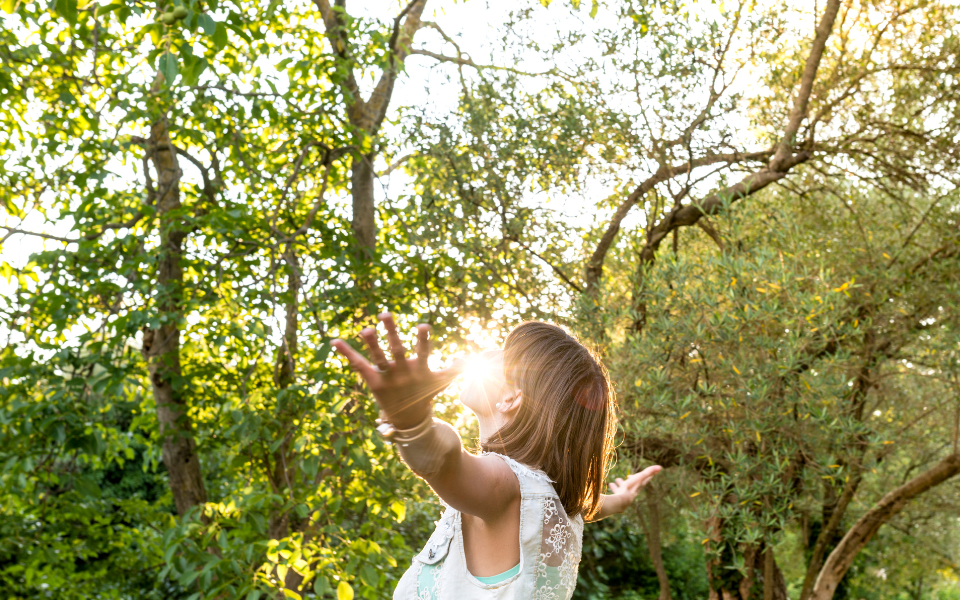What is awakening? It’s a question I found myself asking while standing on top of Mount Kilimanjaro, where I should have felt on top of the world. Instead, I felt lower than I’d ever been. Despite having everything I thought I wanted, something profound was stirring beneath the surface. I didn’t know it then, but I was beginning to awaken.
So what is awakening, exactly? Awakening is the realization that we have a dual nature. We are both personality and soul. It is not only about mystical experiences, although they may happen along the way. True awakening asks us to see clearly how our history, our conditioning, our wounds, and our personality patterns shape how we think, feel, and live. At the same time, it invites us to open to our soul, that deeper, wiser part of us that connects us to meaning, vitality, and something larger than ourselves.
Many people arrive at this threshold not with clarity but with confusion. They feel lost, stuck, and strangely disconnected as though life is happening in a fog. From the outside, their lives may look good, yet on the inside, something feels missing.
The threshold of awakening
For many, the first sign of awakening is what I call soul hunger. It shows up as a longing for something we can’t quite name. Perhaps it feels like a restless ache, a lack of vitality, or the quiet thought, “Why am I not happy when I have so much to be grateful for?” This hunger often reveals itself through two deep needs: the need for greater meaning and the need for deeper connection.
You may feel called to live for something larger than yourself, to use your gifts in a way that matters. Or you may feel a hunger for relationships where you can connect at a soul level, speaking about things that truly matter. These longings are not flaws. They are the signals of awakening.
The body as messenger
Sometimes our bodies tell the truth before our minds can make sense of it. Stress hormones may be elevated, sleep may be restless, or vitality may drain away even when there are no obvious “stressors” in daily life. This inner disconnection is stressful to the nervous system, and it’s the body’s way of saying, something deeper needs your attention.
For me, the doorway inward was meditation. Five minutes a day at first felt terrifying because the idea of sitting quietly with myself seemed impossible. And yet it became the beginning of coming home to myself. For many, that first pause, however small, is where awakening begins.
The cocoon phase
Awakening often begins with a need to pull back. To withdraw from the distractions of busyness and create space to listen inward. You may feel a need to step into a cocoon for a season that’s away from the noise, the roles, even familiar relationships, in order to reconnect with yourself.
During this phase, many people turn to new practices, books, or communities that open the door to perspectives they had never considered before. It can feel unsettling and unfamiliar, yet it is also a sacred beginning.
Seeing with new eyes
A turning point comes when we realize awakening is not a problem to fix but a process to understand. For me, this understanding deepened during my studies in transpersonal psychology when I encountered the book, When the Soul Awakens, by Nancy Seifer and Martin Vieweg. This profound work illuminated the spiritual evolution happening in our time. Suddenly, the confusion and emptiness were reframed: this was not illness, but the beginning of seeing myself more clearly in my life in a new way. Awakening is, at its core, the call to know yourself more deeply and from that place connect with something bigger.
It means becoming aware of our patterns and how we avoid pain, how we seek approval, how our past shapes us while also opening to the soul’s wisdom, which whispers of meaning, growth, and connection. It is the difference between living in black and white and living in colour.
Why This Matters
Why does this matter? Because when you understand that your restlessness and longing aren’t signs that something’s wrong with you, but signals that you’re being called to something deeper, everything changes. Instead of trying to fix yourself back to who you were, you can begin the sacred work of discovering who you’re becoming.
Understanding the Signs
So, how do you recognize if awakening is stirring within you? While everyone’s experience is unique, there are common signs that often appear when this sacred process begins. You might notice some of these stirrings:
- A restless sense that something is missing.
- A longing for deeper meaning and purpose.
- Feeling like your spark or vitality has faded.
- A hunger for more authentic and soul-nourishing relationships.
- A body that feels depleted, anxious, or unsettled without a clear reason.
- A quiet voice within urging you to pause, withdraw, or create space.
If you notice yourself here, you are not alone. These are often the first signs that awakening is stirring.
From confusion to meaning
It’s natural to feel unsettled when awakening begins. But what feels like being lost is often a threshold. This process frees us from the prison of past wounds and conditioning so we can live into our true potential. It opens us to a life of greater meaning, deeper connection, and authentic service, not from our wounds, but from wisdom.
A gentle invitation
If you find yourself in this place, know this: it is both a hard and a beautiful place to be. Awakening does not make life easier, but it makes it meaningful. There is something profoundly right about living in alignment with your soul.
As Dorothy discovered in The Wizard of Oz, there is no place like home. Awakening is the journey of coming home to yourself. If this resonates with your experience, you might find comfort in knowing that feeling like something is missing often signals the beginning of finding yourself. Through my 4 Keys to Inner Peace framework, I guide people through this sacred process of coming home to themselves.
Please leave a comment below. Our community would love to hear from you!



Leave A Comment